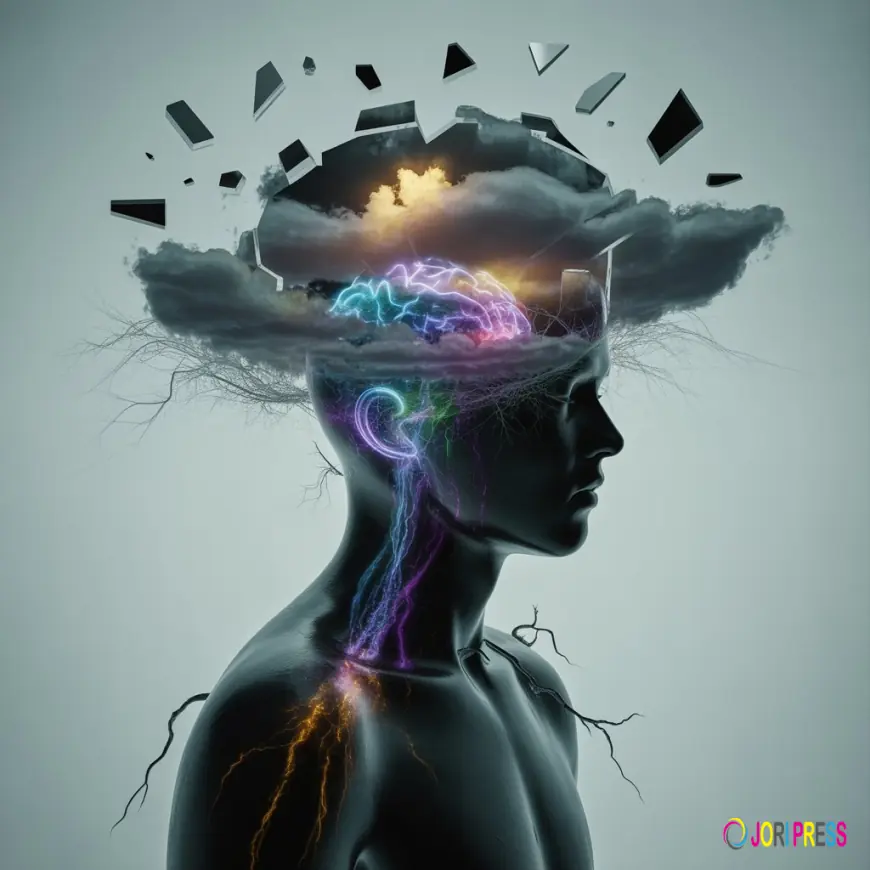The Hidden Struggles of a Mentally Unstable Mind
Explore the hidden struggles of a mentally unstable mind, understanding its pain, causes, and the path toward healing with compassion and support.

Every person carries battles that others cannot see. Some people fight illnesses that are physical and visible, while others face silent battles inside their minds. These inner battles can be more painful because they are invisible and often misunderstood. Many people who struggle mentally may appear fine on the outside, but deep inside, they are fighting thoughts, emotions, and fears that make everyday life a challenge. This is the reality behind The Hidden Struggles of a Mentally Unstable Mind — a topic that deserves compassion, awareness, and understanding.
A mentally unstable mind is not weak or broken; it is a mind in distress. Mental instability can come in many forms. It can be anxiety, depression, bipolar disorder, trauma, or other emotional conditions that disturb a person’s thoughts and behavior. Sometimes, a person doesn’t even know what is happening to them. They just feel lost, tired, and disconnected from life. These feelings can make simple tasks — like getting out of bed, talking to someone, or going to work — seem almost impossible.
feeling misunderstood
One of the biggest struggles of mental instability is feeling misunderstood. People often tell those who are suffering to “be strong,” “stop overthinking,” or “just be positive.” These words may come from good intentions, but they can hurt deeply. When someone’s mind is unstable, positive thinking alone is not enough. They need patience, medical help, emotional support, and time to heal. The lack of understanding from others can make them feel more alone, forcing them to hide their pain behind a fake smile.
the constant inner conflict
Another struggle is the constant inner conflict. The mind of someone who is mentally unstable often becomes a battlefield. One part of them wants to feel better and live normally, while another part feels hopeless and afraid. This constant fight can drain their energy, leaving them exhausted even after a full night’s sleep. They might question their own worth and doubt their ability to cope with life’s challenges. It’s like living in a storm that never fully ends.
Sleep problems are another hidden pain. Some people with unstable mental health find it hard to sleep at night because their minds won’t stop racing. Others may sleep too much to escape their thoughts. Neither extreme brings real rest. Over time, poor sleep affects their concentration, mood, and relationships. They may struggle at work or school because their minds are too tired to focus.
fear of judgment
A mentally unstable person also deals with fear of judgment. Society still carries stigma around mental health issues. Many people are afraid to talk about their struggles because they think others will call them “crazy” or “weak.” This fear keeps them silent, even when they need help the most. Some might avoid doctors or therapists because they fear being labeled. This silence only makes their condition worse.
Relationships also suffer. Friends or family members might not understand why their loved one has changed. The person may withdraw, stop communicating, or react angrily without reason. This creates distance and misunderstanding. However, what they really need is love, patience, and someone who will listen without judgment. A kind word or small gesture can make a big difference in helping them feel valued and understood.
Financial and professional struggles
Financial and professional struggles also appear. A person with mental instability might lose focus or motivation at work. They may miss deadlines, skip meetings, or make mistakes because their mind is not at peace. Some even lose their jobs or drop out of school, which adds more stress and guilt. This cycle of failure and shame can make their condition worse.
However, The Hidden Struggles of a Mentally Unstable Mind are not hopeless. There are ways to heal, recover, and rebuild strength. The first step is recognizing the problem. Admitting that one needs help is not a sign of weakness — it is a sign of courage. Seeking therapy, counseling, or psychiatric help can provide tools to manage emotions and thoughts more effectively. Medication may also help in some cases, under proper medical supervision.
Self-care plays a huge role
Self-care plays a huge role too. Simple things like maintaining a healthy routine, eating properly, exercising, and staying connected with loved ones can make a difference. Small acts, like going for a walk, writing feelings in a journal, or practicing deep breathing, help calm the mind. These may seem small, but they are powerful steps toward healing.
Support from friends and family
Support from friends and family can also change everything. Listening without judgment, showing empathy, and checking in regularly can help a struggling person feel seen and cared for. Sometimes, they don’t need advice — just someone to sit with them in silence. Compassion can bring light into their darkest days.
building self-awareness
Another important part of healing is building self-awareness. Understanding triggers, emotional patterns, and stress points helps people take control of their mental state. When they know what causes their breakdowns, they can take steps to prevent them. Therapy often helps with this self-understanding and teaches healthy ways to manage emotions.
For society
the best way to help is to break the stigma. We must learn to talk openly about mental health, just like we do about physical health. Schools, workplaces, and communities should create safe spaces for people to express their emotions without fear. When more people share their stories, others feel less alone in their struggles.
Ultimately, The Hidden Struggles of a Mentally Unstable Mind remind us that kindness is powerful. You never know what someone is going through. A gentle word, a smile, or even just listening can bring comfort. Mental instability is not a choice, but recovery is possible with love, care, and professional help. Healing takes time, but it begins when we start to understand rather than judge.
The human mind is strong, even when it feels broken. With support, awareness, and compassion, people can find their way back to stability and peace. It all begins with understanding that every hidden struggle deserves care — not shame.
FAQs
People often ask many questions about mental instability, such as: What are the early signs of a mentally unstable mind? Can a mentally unstable person live a normal life? How can I help a friend who is mentally unstable? Is medication the only solution, or can therapy help? What causes mental instability — is it stress, trauma, or genetics? How can family members support someone struggling mentally? Can lifestyle changes improve mental stability? What should I do if I feel I am losing control of my mind? Are there free mental health helplines in Pakistan or globally? And finally, how long does it take to recover from mental instability and feel balanced again?
What's Your Reaction?
 Like
0
Like
0
 Dislike
0
Dislike
0
 Love
0
Love
0
 Funny
0
Funny
0
 Angry
0
Angry
0
 Sad
0
Sad
0
 Wow
0
Wow
0
















































